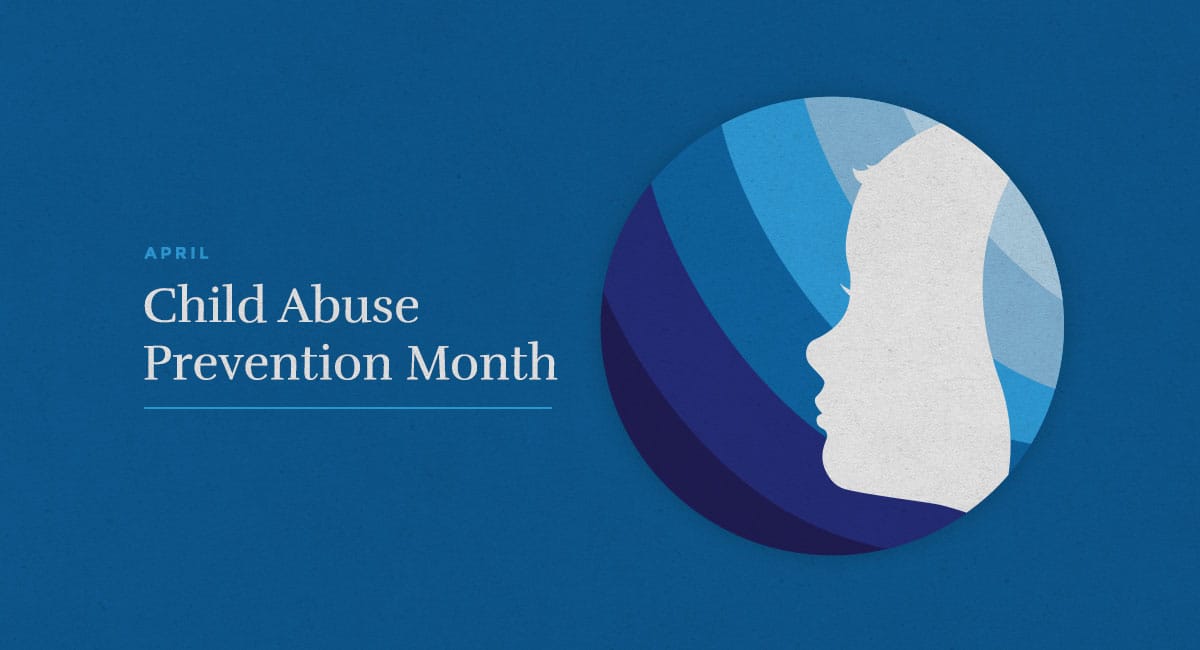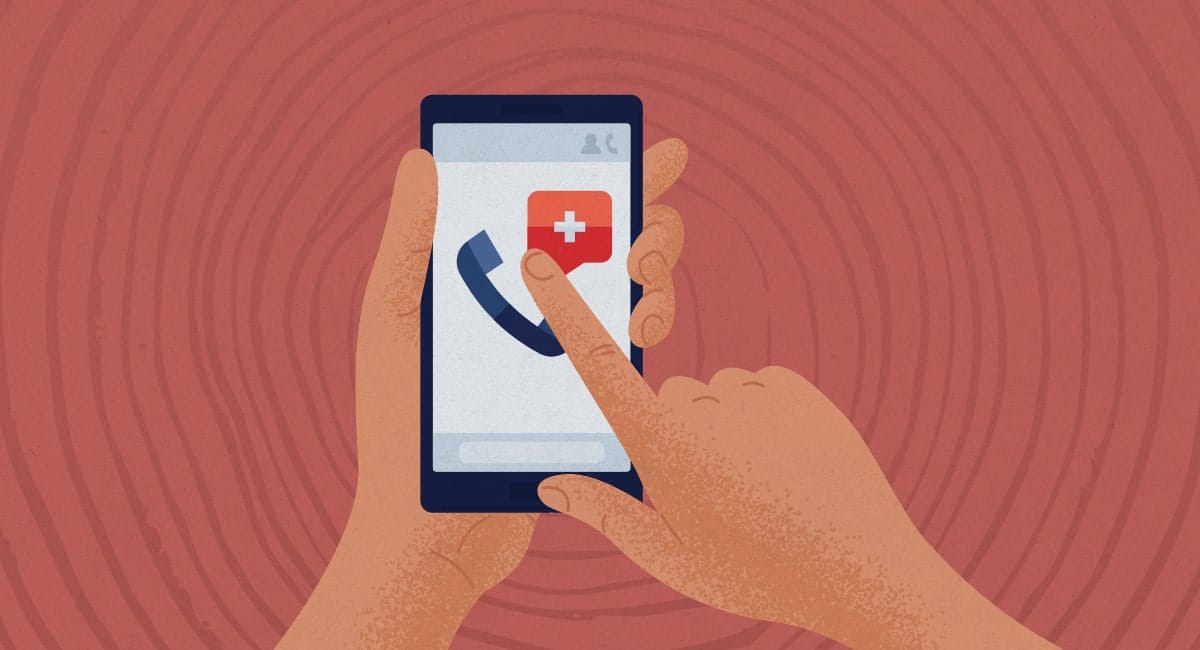Child Abuse Prevention Month: Awareness Is More Essential Than Ever Amid Pandemic
Amid COVID-19 measures, child abuse may be on the rise. This Child Abuse Prevention Month, take time to educate yourself on the issue to prevent future abuse.

April is National Child Abuse Prevention Month. In 2021, after a year of pandemic restrictions, this awareness month is more important than ever. Due to the circumstances surrounding the pandemic, it’s increasingly vital that caregivers and the general public know what child abuse entails and how to report it.
School staff and childcare providers were once frontline reporters for children living with abuse. Now, family members, caregivers, neighbors and other people present in children’s lives have become the first line of defense for many children.
A Global Pandemic Causes Another Crisis For Some Children
The life-altering changes brought by COVID-19 have placed many children in difficult and dangerous situations. In fact, evidence shows that some children may be at a greater risk of maltreatment while stay-at-home measures and pandemic restrictions are in place.
During the pandemic, children are spending more time at home because of virtual learning and social-distancing measures. For some children, that means spending more time with their abusers.
Many of those abusers are also dealing with the added stresses of navigating a global pandemic. This has created a potentially dangerous scenario where children living in abusive homes may be subject to more frequent abuse.
At the same time, the lack of in-school learning means teachers, coaches and school welfare workers are spending less time with these at-risk children. Thus, these caregivers are less likely to spot warning signs and report suspected abuse.
Federal lawmakers are taking note of this dangerous problem plaguing American children. Recognizing the need to address child abuse in this unique era, Congress has proposed new child abuse legislation.
What Is Child Abuse?
Child abuse is an act or a failure to act which results in the death, serious injury or neglect of a child. Most states recognize four main types of child maltreatment:
- Physical abuse
- Sexual abuse
- Emotional or psychological abuse
- Neglect
Typically, acts of abuse are perpetrated by a child’s parent or caregiver. A caregiver may include a child’s babysitter, a teacher or a youth organization leader such as a coach or scout leader.
Abusers capitalize on having unmonitored access to children. For example, the Catholic Church is facing allegations spanning several decades of child sexual abuse by priests.
Child Abuse Prevention Month is all about educating communities on the “who, what, when, where and why” of child abuse. Understanding the full scope of the issue can help prevent potential situations of abuse in the future.
Why Are More Children At Risk Of Abuse During The Pandemic?
According to the World Health Organization (WHO), more than 1.5 billion children have been impacted by school closures during the pandemic globally. Evidence shows that children impacted by stay-at-home measures may be at risk of abuse for several reasons:
- Children may be forced to stay at home with their abusers.
- Children may spend less time with mandatory reporters such as teachers or school social workers.
- Children spending more time online may face a greater risk of cyberbullying or digital abuse.
“Lockdowns, school closures and movement restrictions have left far too many children stuck with their abusers, without the safe space that school would normally offer. It is urgent to scale up efforts to protect children during these times and beyond.”
National Sexual Assault Hotline Calls From Minors Increase
During the pandemic, the National Sexual Assault Hotline has reported a record number of calls from minors.
In June 2020, more than half of the calls made to the hotline during the pandemic were made by minors. Of the minors calling with COVID-19 related concerns, 3 out of 4 of the callers were living with their abuser.
Learn more about reporting sexual abuse or assault here >
General Child Abuse Reports Decrease During Pandemic
Despite the increase in calls to the National Sexual Assault Hotline, child abuse reports have dropped significantly nationwide. This is attributed to the fact that fewer children are physically in school or around mandated reporters.
Experts believe the decline in reports indicates more abuse cases are going unreported rather than an actual decrease in abuse.
House Passes Child Abuse Prevention Bill
COVID-19’s impact on child abuse in America has raised concerns among lawmakers. In January 2021, The Stronger Child Abuse Prevention and Treatment Act was introduced in the U.S. House of Representatives.
In March 2021, the House passed the bill 345-73.
“Our bipartisan effort to pass this bill again this year demonstrates that — no matter our party affiliations — we can all agree that Congress must do more to support children and families.”
The proposed legislation would establish national standards for tracking fatal and near-fatal incidents of child maltreatment. Additionally, the legislation creates an online infrastructure that allows states to share valuable information from their child abuse and neglect registries.
The bill now moves to the Senate for consideration.
Child Abuse Prevention Month Takeaways
There are many ways to participate in local events and activities for Child Abuse Prevention Month. However, one of the best ways to participate as an individual is to educate yourself on the issue of child abuse.
When you can recognize the signs and symptoms of abuse, you can report it and potentially save a child from significant harm.
Understand What Abuse Looks Like
Any child can be a victim of abuse, and it can take place anywhere. Understanding what constitutes abuse and recognizing the signs can help prevent cases of abuse.
Learn more about child abuse using this guide from the Children’s Bureau.
Report Suspected Abuse
If you or a suspected victim is in danger, call 911 immediately.
You do not need to have proof that abuse is taking place to report it. However, you must have reasonable suspicion to make a report. This is known as a good-faith report.
To report suspected child abuse or neglect, call the ChildHelp National Abuse Hotline at 1-800-4-A-CHILD (1-800-422-4453). You can also call your state child abuse agency using this resource list.
Sources
- 1
Child Welfare Information Gateway. (2018, September) Immunity for Reporters of Child Abuse and Neglect [PDF]. Children’s Bureau.
- 2
Child Welfare Information Gateway. (2019, April) What Is Child Abuse and Neglect? Recognizing the Signs and Symptoms [PDF]. Children’s Bureau.
- 3
Child Welfare Information Gateway. (N.D.) Definitions of Child Abuse & Neglect. Children’s Bureau. Retrieved March 23, 2021.
- 4
Child Welfare Information Gateway. (N.D.) How to Report Child Abuse and Neglect. Children’s Bureau. Retrieved March 23, 2021.
- 5
Child Welfare Information Gateway. (N.D.) State Child Abuse and Neglect Reporting Numbers. Children’s Bureau. Retrieved March 23, 2021.
- 6
LeBlanc, P. (2021, March 16). House passes sweeping child abuse prevention bill. CNN.
- 7
LeBlanc, P. (2021, May 17). Child abuse reports are down during the pandemic. Experts say that’s a bad sign. CNN.
- 8
RAINN. (2020, June 19). COVID Update: Hotline Continues to Hear from Children, Those Concerned for Their Safety.
- 9
Wikipedia. (2021, March 15). Child Abuse. Retrieved March 23, 2021.
- 10
World Health Organization. (2020, June 18). Countries failing to prevent violence against children, agencies warn.
- 11
World Health Organization. (2020) Global status report on preventing violence against children [PDF]. UNICEF.

